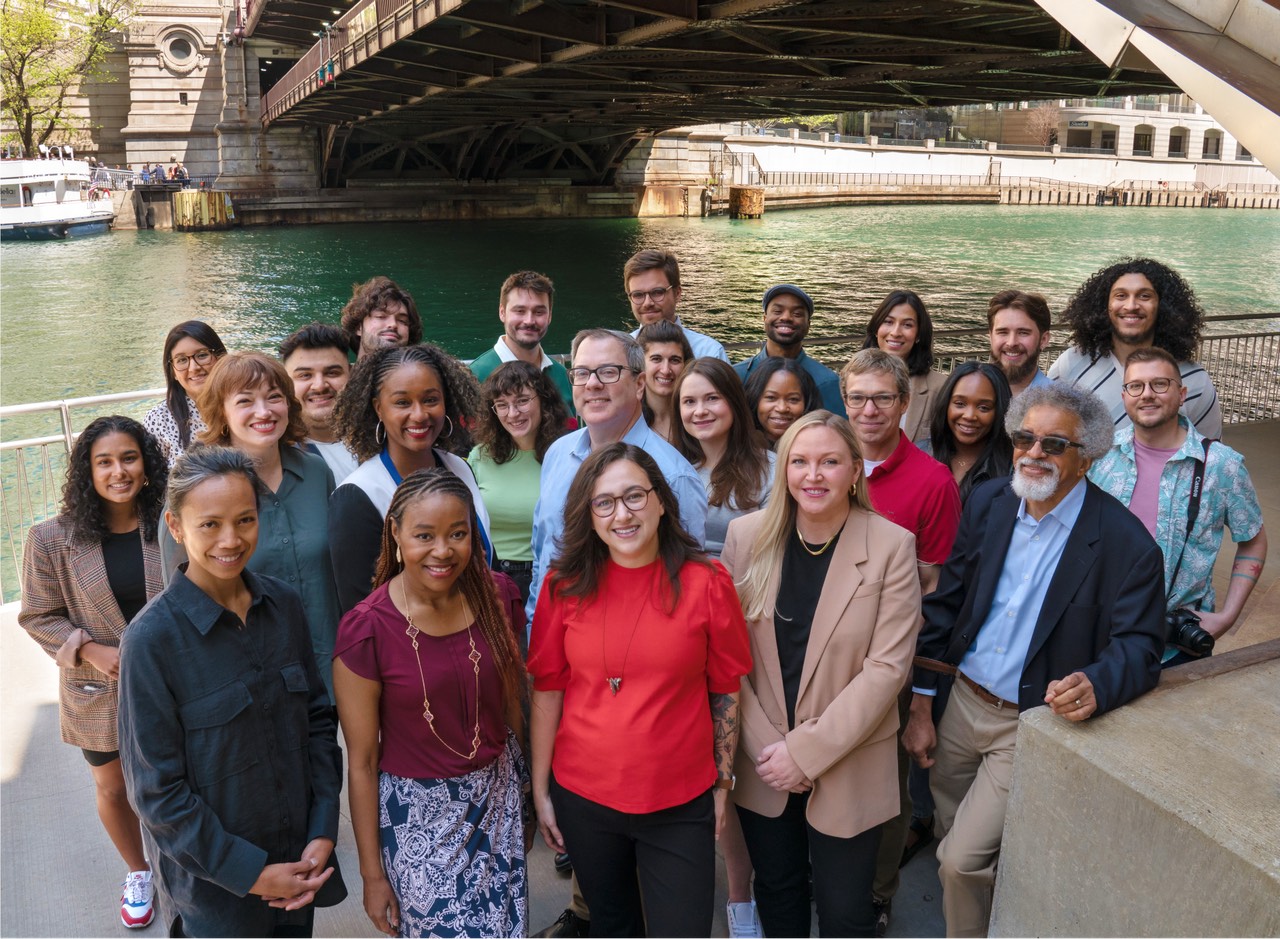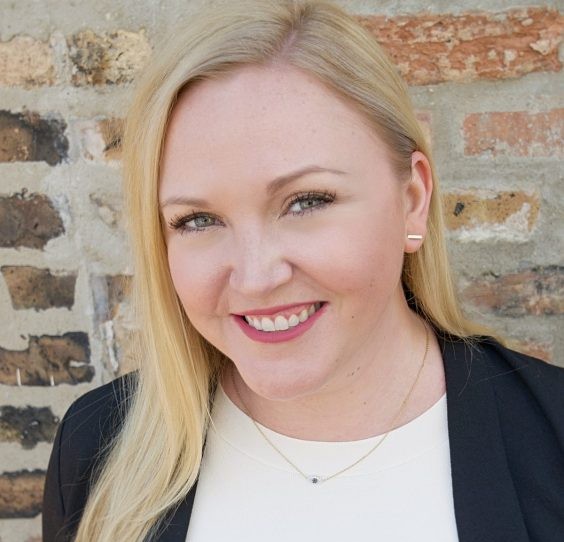Block Club Chicago—a nonprofit newsroom that has been accumulating reporters, readers and accolades—hit one milestone last month and reaches another one Tuesday.
Last month, Block Club Chicago officially outlasted its predecessor, DNAinfo, a Chicago online news startup that operated for four years and 11 months before billionaire owner Joe Ricketts abruptly shuttered it (and the Gothamist network of sites) in November 2017. Newly lacking funding and employment, DNAinfo editors Shamus Toomey, Jen Sabella and Stephanie Lulay chose to continue their mission and started a new neighborhood news site from scratch, Block Club Chicago, on June 13, 2018, exactly five years ago
The name refers to a type of Chicago neighborhood association where people band together to share information and improve the community. Block Club Chicago’s stated mission remains “to build community through truly ground-level reporting of the city’s neighborhoods.”
As it marks its fifth anniversary, Block Club Chicago has built a news staff larger than DNAinfo’s and accumulated almost 20,000 subscribers while becoming a major player on the local journalism scene. The site has broken major news stories, such as Loretto Hospital’s diversion of COVID vaccines from its underserved West Side community to ineligible people with ties to the hospital’s top administrators, such as some who attended one executive’s church and others who lived in Trump Tower. That reporting, led by Kelly Bauer, prompted the Loretto CEO’s ouster, an FBI investigation and follow-ups from national and local news organizations.
On the lighter side, Block Club went viral with its contest to name an alligator found swimming in the Humboldt Park lagoon (Chance the Snapper triumphed over Ruth Gator Ginsberg and Croc Obama, among others) and sold T-shirts (“Chicago Is for Lovebirds”) depicting Monty and Rose, the piping plovers that nested at Montrose Beach on Chicago’s North Side.
The diversity of coverage is evident in the five Peter J. Lisagor awards (presented by the Chicago Headline Club, a branch of the Society of Professional Journalists) that Block Club Chicago won in May honoring a report about racial inequity in police traffic stops, deadline reporting about a fatal fire, a photo series, video and use of social media in a series.
But the lessons to be learned from Block Club’s approach extend beyond accolades. While plenty of neighborhood-focused sites have faltered, Block Club Chicago has maintained an upward trajectory on both the journalism and business sides while remaining true to a core set of principles. It has built up its coverage neighborhood by neighborhood–it now reports to cover 45 of the city’s 77 community areas–while continually adding reporters. It has funded that work largely by asking the community to pay for it.
Subscribers benefit not only from unlimited access to the site’s reporting but also newsletters written by the neighborhood reporters offering additional information and story links. At the same time, Block Club continues to make much of its reporting free, including breaking news and public-health coverage as well as reports from the city’s traditionally underserved South and West Sides.
Foundations have taken notice and last year announced two grants—each for $1.6 million over three years—that may prove to be transformative. One, from the McCormick Foundation, aims to boost the site’s investigative reporting while the other, from the American Journalism Project, is enabling Block Club to hire five staffers (three in place so far) focused on raising revenue. Block Club co-executive editor/co-founder Stephanie Lulay views the grants as major steps in the quest for sustainability as a newsroom serving Chicago’s diverse communities.
Although Block Club Chicago has no intention of expanding to other cities, its model may be instructive to fledging news operations nationwide as they attempt to pursue aggressive hyperlocal journalism within a sustainable business model.
“Block Club is one of the most successful local digital news startups in the nation in the last five years and there are lessons to be learned in its growth,” said Tim Franklin, the senior associate dean and John M. Mutz Chair in Local News at the Medill School of Journalism, Media, Integrated Marketing Communications. “First and foremost, Block Club understands its audience and listens to its readers, and it’s been very disciplined about staying laser focused on serving their needs and interests. Block Club is not trying to be the [Chicago] Sun-Times or the Tribune. It’s figured out how to fill a void in the market covering unique, hyperlocal news across the city.
“And, importantly, the leadership team there has been entrepreneurial in building its business model – a diversified mix of crowdfunding, reader revenue, advertising, merchandise, and philanthropy. They’ve built a journalistic and financial model with legs, and one that could be replicated elsewhere, especially in densely populated urban areas.”
As Block Club approached the day it surpassed DNAinfo’s lifespan, I spoke with Lulay about the five years that have passed and the five years yet to come for this thriving local newsroom. Our conversation is edited for clarity and brevity.


